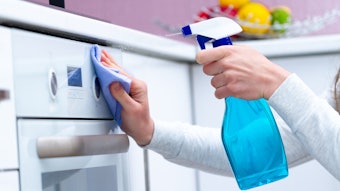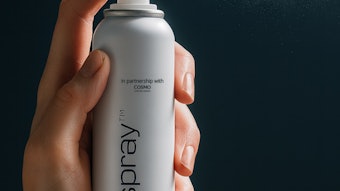The International Fragrance Association North America has released a statement in response to a new study from the Silent Spring Institute titled Endocrine Disruptors and Asthma-Associated Chemicals in Consumer Products.
The statement reads:
“This study presents a clear example of biased, advocacy-based research,” says William Troy, PhD, Scientific Adviser to the International Fragrance Association North America. “It is a repackaging of older information and the methodology used defies basic principles and standards of scientific protocols and investigations. The advice to consumers based on study findings is simply wrong,” said Troy.
Troy highlights a few of the major flaws in the study:
- The study repackages articles with questionable conclusions and product composition information. In fact, the information presented is four and five years old and, as the authors acknowledge, products change on a regular basis.
- There is no scientific consensus on definitions of endocrine disruptors. The materials tested have not been confirmed to be endocrine disruptors nor asthmagens. The study lists diethyl phthalate (DEP) as a phthalate used in fragrances, but then notes “… DEP is not generally characterized as an endocrine active compound.”
- Detection of ingredients in a product is not an indicator of risk. Materials were found in trace amounts, under 0.0001–0.01 percent levels, and have been assessed for safety by the companies producing the products and are considered safe for intended use.
- It includes assumptions that regulators rely on product labels to develop exposure models. The fact is that researchers would rarely (if ever) rely on a product label to determine exposure scenarios and/or human or environmental health risk assessments.
“IFRA North America members, who design and manufacture scents for many of the products listed in the study, stand by the safety of fragrances used in consumer products,” said Jennifer Abril, president, IFRA North America. “The global fragrance industry has a superior safety track record and has always taken a responsible and pro-active approach to the safety of materials used, continuously analyzing and reviewing them for their effects on consumer health and the environment,” said Abril.
Meanwhile, the American Cleaning Institute has issued the following release:
The American Cleaning Institute (ACI—formerly The Soap and Detergent Association) today expressed disappointment with research which wrongly raises unfounded safety concerns over cleaning products and ignores enhanced efforts to communicate with consumers about product ingredients.
“An enormous amount of research, development and testing takes place before cleaning products hit the shelves,” said Richard Sedlak, ACI executive vice president, Technical & International Affairs. “Detailed safety assessments are conducted by companies throughout the life cycle of a product. In essence, safety is built into the DNA of cleaning product development and manufacturing.”
ACI said that the paper—co-written by the interest group Silent Spring Institute in the journal Environmental Health Perspectives—distorts the established safety of ingredients used in cleaning products by inappropriately equating their detection with health issues.
“Despite the researchers’ insinuation of health concerns from the mere presence of these ingredients in everyday life, the research does not demonstrate that proper use of these products is contributing to health and safety problems. In reporting their results, the researchers failed to demonstrate the impact of their mixing ingredients from multiple products into single samples may have had in compromising the analytical results.
“It’s apparent through Silent Spring Institute’s publicity materials that they are disparaging dozens of products and ingredients that contribute to better hygiene, health and living every day.“
ACI also rebutted criticisms about the supposed lack of available information about cleaning product ingredients.
The Consumer Product Ingredient Communication Initiative provides increased transparency under one of the most comprehensive ingredient communication consumer product programs in North America. Information about the Initiative is available at www.cleaninginstitute.org/IngredientCentral.
Under the Initiative, companies are voluntarily sharing with consumers more information than ever about the ingredients in their products (air care products, automotive care products, cleaning products, and polishes and floor maintenance products). This information is found on product labels or company websites, via toll-free hotlines or other non-electronic means.
“It’s unfortunate that interest groups continually try to scare consumers about products that are used safely and effectively on a daily basis,” said Sedlak. “ACI will continue to responsibly inform consumers, researchers and regulators about the detailed safety processes that are a part of cleaning product manufacturing.”










